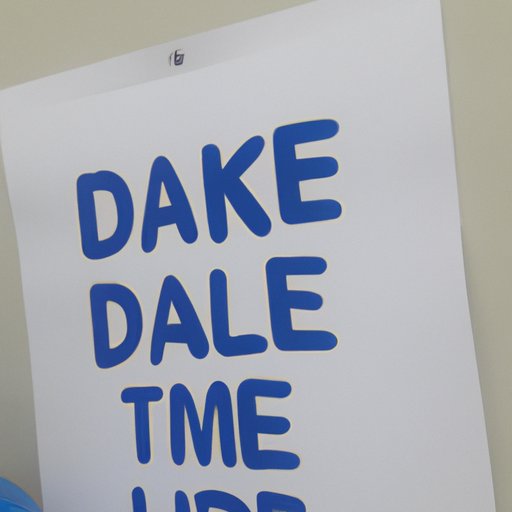Introduction
Time management is essential in order to stay on top of tasks, reach goals, and maintain a healthy work-life balance. But what exactly is time management? According to an article published by the American Psychological Association, it is “the ability to plan and control how you spend the hours in your day to effectively accomplish your goals.” It’s no surprise that so many people struggle with this skill; after all, there just aren’t enough hours in the day! Luckily, there are a few simple techniques that can help you make the most of your time.

Create a Schedule and Stick to It
The first step to better time management is to create a schedule and stick to it. Start by making a list of everything you need to do, from everyday tasks like cleaning and grocery shopping to long-term projects like writing a book or planning a wedding. Then, set reasonable deadlines for each task. For instance, if you have a big project due at the end of the week, break it down into smaller chunks and set deadlines for each part.
Once you have a list of tasks and deadlines, establish routines. This will help you stay on track and avoid getting overwhelmed. For example, set aside specific times for checking emails, returning phone calls, and taking breaks. Planning ahead and sticking to a schedule will help you stay focused and productive.
Break Down Big Tasks into Smaller Ones
Big tasks can be intimidating and overwhelming, but breaking them down into smaller, manageable pieces can make them much easier to tackle. Start by identifying the sub-tasks associated with the main task. For instance, if you’re writing a book, some of the sub-tasks might include researching, outlining, drafting, and revising. Once you’ve identified the sub-tasks, set mini-goals for each one. This will help you stay motivated and celebrate progress as you go.

Make Use of Dead Time
We all have moments of dead time throughout our days—while commuting, waiting in line, or running errands. Instead of mindlessly scrolling through your phone, use this time to stay productive. Utilize your commute by listening to podcasts, reading books, or catching up on emails. Take advantage of wait times by organizing your to-do list or making calls. Making use of even the smallest pockets of time can help you get ahead.
Prioritize Your Tasks
It’s important to prioritize your tasks so that you can focus on the most important ones first. Start by ranking your tasks by importance and urgency. This will help you determine which tasks need to be done right away and which ones can be put off until later. Additionally, avoiding procrastination can help you stay focused and on track. Find ways to stay motivated and remind yourself why the task is important.
Learn to Say “No”
One of the best ways to manage your time is to learn how to say “no”. Respect your boundaries and don’t take on too much. Prioritize self-care and make sure you’re taking time for yourself. By protecting your time and saying “no” to unnecessary tasks, you’ll be able to focus on the things that are truly important.
Conclusion
Time management is essential in order to stay on top of tasks, reach goals, and maintain a healthy work-life balance. To make the most of your time, create a schedule and stick to it, break down big tasks into smaller ones, make use of dead time, prioritize your tasks, and learn to say “no”. With these seven tips, you’ll be well on your way to becoming more productive and effective with your daily tasks.
(Note: Is this article not meeting your expectations? Do you have knowledge or insights to share? Unlock new opportunities and expand your reach by joining our authors team. Click Registration to join us and share your expertise with our readers.)
